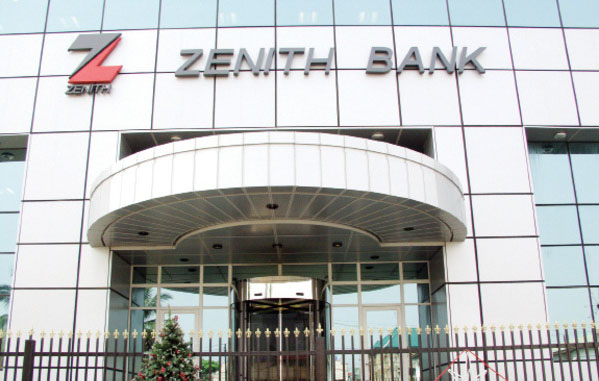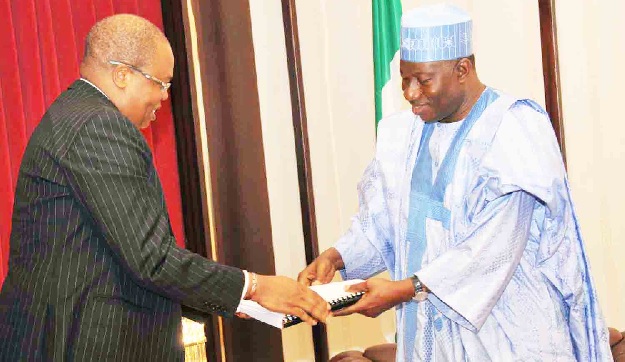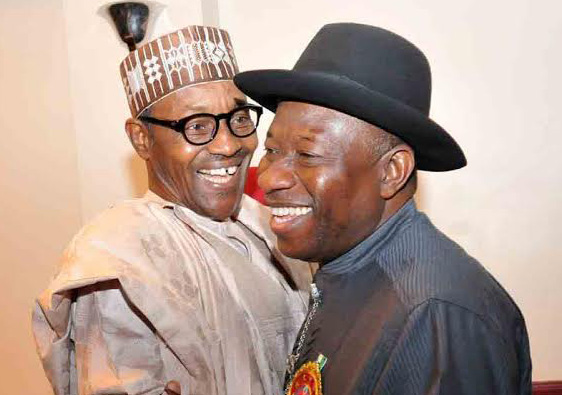As I optimistically project that this year’s presidential election is going to be phenomenal, I am also cracking my brain trying to understand the Nigerian electorate and how the voting will go. How does the mind of Nigerian voters work? What facts and factors play the biggest role in shaping their behaviour? While I’m not seeking to predict the results, I hope the polls will help me gather more evidence on the patterns of political behaviour among the Nigerian electorate.
There are various ways of categorising voters if you want to analyse them. A form of categorisation is “partisan” and “non-partisan”. Globally, most voters do not belong to any party. But this does not preclude sympathies. For instance, I may not be a card-carrying member of Party ABC but vote for it regularly. On other occasions, I may decide to vote for Party DEF because of other factors, such as the candidates on the ballot and burning issues.
Another form of categorisation is by “interests” or motivations. I can think of four big interests: material, “ideology”, primordial and political affinity. These interests are not mutually exclusive, but some are dominant and others recessive, depending on the political currents. I define material interest as basically “stomach infrastructure”. It pulls a significant crowd in Nigeria. A small bag of rice and that is it. In any poor society, food is a big appetizer for people’s loyalty.
The second interest has to do with “ideology”. I use the word extravagantly. There are those who still believe in the ideals of how a society should run or function. They think that in the whole mess, one party or one candidate is still better than the other. Voters of this hue are not explicitly motivated by emotional interests. They do not find it hard to ignore ethnic, religious and regional emotions in casting their votes. This category is gradually gaining ground in Nigeria.
Advertisement
Many voters are, however, motivated by “primordial” interest. I define this in terms of ethnic, regional or religious sentiments. If they have to choose between a candidate from their region or religion and someone else, they will automatically vote for their ilk. But if no strong candidate of their kinfolk is on the ballot, they are likely to vote for who is “closer” to them — that is, someone who is likely to protect their interests or who has identified with them all along.
The fourth interest is “political affinity”. In this category, it is not so much about ethnic or religious affiliation, but historical political alliances. In the past, for example, Southern minorities used to vote for the mainstream parties from the north. This affinity is defined by leaders — particularly politicians and traditional rulers. These are the “influencers”. If they direct their followers to vote for someone from another place or party, they will comply.
In those days, we used to say Kwara would go anywhere Dr. Olusola Saraki went. Under Gen. Sani Abacha, for instance, Kwara was the only state dominated by the Congress for National Consensus (CNC) simply because Saraki said so. That is the power of political leaders. However, there are times when it is very difficult to know who is directing whom — is it the leaders or the followers? Sometimes, the leaders simply read the mood of the followers and quickly go in their direction.
Advertisement
“Stomach” and other interests are, certainly, not mutually exclusive but I chose to distinguish them because there are still thin lines. It is not all the time that money can win you an election. If people’s emotional interests lie elsewhere, no amount of “stomach infrastructure” can sway them. In 1999, for instance, the south-west voted for the Alliance for Democracy (AD) because of the emotion of June 12. No amount of money from the PDP could sway them.
In the same vein, there is no amount of “stomach infrastructure” that will make President Goodluck Jonathan win Katsina state or Gen. Muhammadu Buhari sweep Bayelsa state. Emotional interests are very strong there. Primordial interests and political affinity are highly emotional by nature, unlike “stomach infrastructure” and “ideology” which are rational choices. Stomach is fluid and based on “survival” instincts, while ideology is more of a conviction.
So what? I would guess that the Nigerian electorate today is dominated by “stomach” and primordial interests. Poverty always makes material inducement a strong factor. However, primordial interest has the capacity to dilute the impact of “stomach infrastructure” as earlier explained. Watch out, though, for the “ideological voters” who have made social media their village square. They are coming up very well. I would think many more Nigerian voters are now going ideological.
As the 2015 presidential election draws close, I have been asking myself: what interest will have the most significant impact this time around? One thing is clear: emotional interests will play a big role — don’t expect Jonathan to win Kano or Buhari to win Abia. Sentiments are always a fundamental factor in our elections. Many voters will queue behind Buhari or Jonathan not because of “change” or “transformation” but basically because of primordial interest and political affinity.
Advertisement
Although we don’t know the percentage of voters that will vote along these two emotional lines, many analysts have already predicted that the south-south and south-east will vote Jonathan while north-west and north-east are safe for Buhari. By also giving Jonathan an edge among the northern minorities, analysts are apparently agreed that emotional interests will be a major factor, rather than the “change” or “forward” message in the campaigns.
Predictions based on these traditional sentiments have thus thrown up the south-west as the beautiful bride. It is widely projected that whoever wins in this region will carry the day. The question to consider then is the role emotions and rational thinking will play in the zone. Aside the emotions that Jonathan is a southerner and Buhari’s running mate, Prof. Yemi Osinbajo, is a south-westerner, we need to pay attention to the question of ideological vs material interests.
What influence would the “ideological voters” — those who say Jonathan has not performed well and should be voted out — have on the final outcome in the zone? On the other hand, how many votes would “stomach infrastructure” deliver? Who will dominate in each area? It seems Buhari owns the ideological voters who are asking for “change” but the “stomach” voters are often available to the highest bidder until the eve of the election.
Currently, PDP controls two south-west states — Ondo and Ekiti. Their governors are not standing for elections and could therefore concentrate their “stomach” resources on the presidential poll. Osun, too, holds only one poll and this would play to APC’s advantage. However, there is a risk of divided attention in three other states — Lagos, Oyo and Ogun — where APC will be prosecuting two tough elections in two weeks. They may be forced to prioritise their use of “stomach” resources.
Advertisement
The battle for the south-west could end up as a battle between “ideology” and “stomach” among the majority of voters. Will the majority of voters be motivated by “ideology” or “stomach”? The outcome, it seems, will now be down to what interest outnumbers the idea. The one is educated and enlightened; the other is not that enlightened and is less worried about ideological cravings. But even among the “stomach” constituency, there are die-hard party loyalists who will still toe party line at the ballot. This further complicates the psycho-analysis.
Meanwhile, I am also very interested in what impact the social media would have, given the very prominent role it has played in the campaigns, especially among the “ideological” voters. It has been very ferocious and fascinating. Ultimately, the outcome of the elections should enrich our knowledge of the behaviour of the Nigerian voter. In the absence of reliable exit poll data, we would eventually have to make use of empirical judgment. Let the game begin!
Advertisement
AND FOUR OTHER THINGS…
BOKO CORNERED?
I truly and sincere appreciate the efforts of Nigerian soldiers in the war against Boko Haram, but it is very clear that something is terribly wrong somewhere. We cannot be losing Michika and recapturing it and then losing it again and recapturing yet again. We are not just getting something right. We cannot be running away from the militants and claiming we are well-equipped or we are doing tactical manoeuvre. No, something is wrong. I’m glad that our neighbours and the whole of Africa have now joined us in fighting this war. Maybe something is about to happen. Maybe.
Advertisement
JONATHAN’S FOES
When I read the hard-hitting opinion of former CBN governor, Professor Chukwuma Soludo, against President Goodluck Jonathan, I could not but wonder how the president sleeps at night. It is one day, one trouble. So many people have been on his case: Northern Elders Forum, Rev. Fr. Ejike Mbaka, Mr. Festus Keyamo, Mrs Oby Ezekwesili, former President Olusegun Obasanjo, Dr. Christopher Kolade, Professor Wole Soyinka, and many too numerous to mention. This is to say nothing about the social media warriors who savage him 24/7. And now Soludo. It seems the president’s vocal supporters are seriously outnumbered. Amazing.
Advertisement
FASHOLA’S GAFFE
I respect Lagos Governor Babatunde Fashola as a competent and dynamic public administrator, but I hardly see eye-to-eye with him when it comes to his politics. In trying to campaign for the APC governorship candidate, Mr. Akinwunmi Ambode, recently, Fashola said the PDP candidate, Mr. Jimi Agbaje, at 57, is too old to govern Lagos state. Given that APC is fielding a 72-year-old candidate in the presidential election, Fashola was attempting to score an own goal. Even then, discrimination on the basis of age, gender or ethnicity should never be associated with Fashola, who is clearly an urbane leader. Blunder.
ARISE AND SHINE
At last, ARISE News is available on DStv channel 416 and GOtv channel 44. Founded by Mr. Nduka Obaigbena, the Chairman and Editor-in-Chief of THISDAY, ARISE News has made me proud as a Nigerian with its world-class content, set and presentation. I had wondered over the years if we were ever going to have a Nigerian broadcaster that can stand shoulder-to-shoulder with Al Jazeera, BBC or CNN. ARISE has come to fill a big gap. Being watched all over Africa now via DStv is worth celebrating. It has taken suspiciously too long, but all is well that ends well. Hurray!





